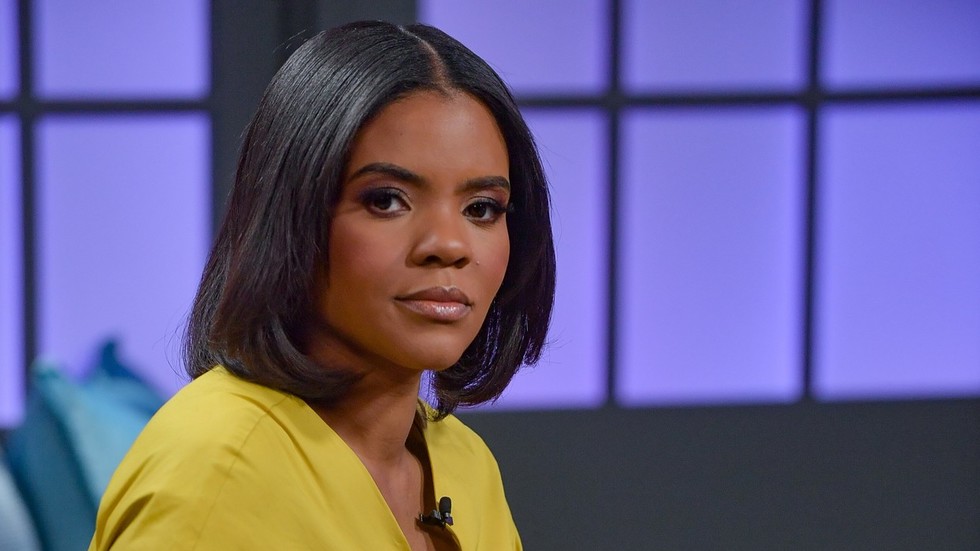Candace Owens, a prominent right-wing commentator in the United States, has faced significant backlash for her controversial statements regarding various social groups, particularly Jews and Muslims. Her planned speaking tour in Australia has been thwarted after Australian authorities rejected her visa application, citing her potential to incite social discord as a primary reason for this decision. Immigration Minister Tony Burke articulated that the national interest of Australia is better served by barring Owens from entry, emphasizing that her history of incendiary comments poses a threat to social harmony within the country. Owens, who enjoys a substantial following of 18 million on YouTube, has consistently attracted criticism for remarks targeting Jewish individuals, Muslims, and the LGBTQ+ community, which have been labeled as inflammatory and anti-Semitic.
One of the most significant controversies surrounding Owens involves her remarks regarding the Holocaust and the activities of Nazi doctor Josef Mengele, who infamously conducted inhumane medical experiments on Jewish individuals in concentration camps. In July, Owens made headlines when she called the documented evidence of Mengele’s experiments “completely absurd” and characterized it as “bizarre propaganda.” This statement, among others, has played a crucial role in solidifying her reputation as a polarizing figure and has led Australian Jewish groups to push for the cancellation of her visa prior to her intended tour. Burke’s statement highlighted Owens’s capacity to instigate discord, referencing her historical pattern of downplaying the Holocaust and promoting inflammatory narratives, which have become alarming for many communities, especially those who are historically marginalized.
Owens’s controversial comments have not only earned her criticism from various groups but have also triggered internal conflict within conservative circles. Earlier this year, she was dismissed from the right-leaning media outlet Daily Wire after making statements accusing Israel of committing “genocide” in Gaza. In her critique, she pointed to a “small ring” of “political Jews” in the United States that allegedly use their Jewish identity to shield themselves from criticism. These remarks incited a fierce backlash from Ben Shapiro, a co-founder of Daily Wire and a prominent Jewish conservative commentator, who labeled Owens’s statements as “disgraceful.” This feud underlines the complexity within conservative politics regarding discussions around Israel, anti-Zionism, and the intersection of American identity and Jewish immigration.
Groups such as the Anti-Defamation League have rigorously campaigned against Owens, characterizing her views as explicitly anti-Semitic, anti-Zionist, and anti-Israel. Their efforts culminated in a wider call for Australian officials to reject her visa application. In addition to comments regarding Jews and Israel, Owens has also drawn fire for her anti-LGBTQ+ rhetoric, particularly against the transgender community. Her assertion that the movement for transgender equality is both “dangerous” and “evil” has been met with derision from LGBTQ+ advocacy organizations, such as GLAAD. The cumulative effect of these controversial statements showcases Owens’s polarizing presence and raises significant concerns among various civil rights groups.
Throughout the COVID-19 pandemic, Owens amplified her controversial opinion by suggesting that the U.S. military should intervene in Australia to “free” what she described as an oppressed population suffering under a “totalitarian regime.” This comment further exemplified her tendency to advocate drastic measures in response to her perceptions of civil liberties being under siege. Such statements have solidified her status as a provocative influencer, contributing to her divided following and painting her as a fringe voice even within broader conservative circles.
As Owens’s notoriety continues to grow alongside her social media following, her exclusion from Australia adds a new chapter to her contentious public image, raising more profound questions about the responsibilities of public figures and the balance between free speech and the potential to incite hate. The ongoing discussions surrounding her exclusion highlight significant societal debates around the influence of media personalities on public sentiment and social cohesion, especially when addressing sensitive historical topics and communities that have faced systemic discrimination. Ultimately, Candace Owens’s case serves as a reflection of the larger tensions within contemporary discourse on race, religion, and identity politics in the United States and beyond.

